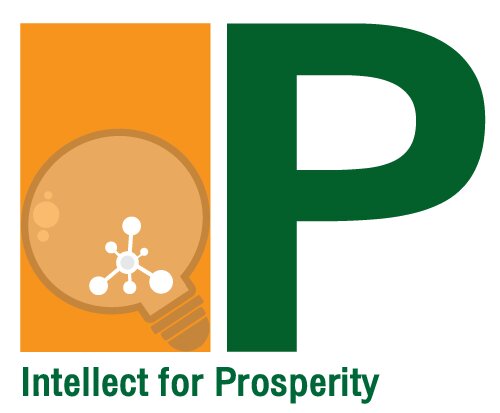Best Project Finance Lawyers in Thailand
Share your needs with us, get contacted by law firms.
Free. Takes 2 min.
Or refine your search by selecting a city:
List of the best lawyers in Thailand
Legal guides written by SIAM LEGAL INTERNATIONAL:
- Defamation Laws in Thailand: Criminal Charges and Civil Suits
- The State of Thailand’s Long-Term Resident (LTR) Visa Program in 2025
- The Penalties Of Not Filing Your Income Tax Return As A Foreigner In Thailand
About Project Finance Law in Thailand
Project finance is a specialized method of funding large-scale projects, such as infrastructure, energy, or industrial ventures. In Thailand, project finance plays a crucial role in supporting economic growth and development, especially in sectors like transportation, renewable energy, real estate, and utilities. This financing approach relies on the projected cash flow of the project for repayment, rather than the sponsors' own assets. Legal frameworks and regulations shape how these projects are structured, funded, and managed, ensuring that obligations and risks are appropriately allocated among all parties involved.
Why You May Need a Lawyer
There are several situations where legal assistance is essential in project finance transactions in Thailand. These include:
- Drafting and reviewing complex contracts such as loan agreements, security agreements, and project documents
- Navigating local regulatory and licensing requirements specific to large-scale projects
- Conducting due diligence on project partners, land titles, or regulatory compliance
- Negotiating with banks, investors, contractors, and government bodies
- Managing risk allocation and dispute resolution throughout the life cycle of the project
- Ensuring compliance with environmental, occupational health, and labor laws
- Advising on foreign investment restrictions and legal structures for foreign involvement
Engaging a lawyer experienced in Thai project finance helps protect your interests, anticipate challenges, and ensure that your project complies with all applicable laws.
Local Laws Overview
Project finance in Thailand is shaped by a combination of general and project-specific legal frameworks. Key legal aspects include:
- Foreign Participation - Foreign investors must comply with the Foreign Business Act and related sector regulations. Some projects may require joint ventures with Thai partners or specific approvals from authorities.
- Concessions and Permits - Large projects, especially in infrastructure and public utilities, usually require concessions or permits. These are governed by sector-specific acts, such as the Public-Private Partnership Act.
- Securities and Collateral - Lenders often require robust security interests over project assets. Thai law recognizes mortgages, pledges, and business security agreements under the Business Security Act.
- Land Use - Land acquisition and use are tightly regulated, particularly for foreign investors. Restrictions may apply based on project type and location.
- Environmental Regulations - Projects must comply with environmental impact assessment (EIA) requirements and obtain relevant environmental permits.
- Taxation and Incentives - Certain project types may benefit from tax incentives offered by the Board of Investment (BOI), requiring compliance with specific regulations and reporting obligations.
- Contractual Arrangements - Risk allocation is key. Construction, operation, and supply agreements must be structured in compliance with Thai law to be enforceable and bankable.
Frequently Asked Questions
What is project finance and how is it used in Thailand?
Project finance is a funding technique where the repayment relies on the project's future cash flow and assets. In Thailand, this methodology is commonly used for infrastructure, energy, and real estate developments.
Can foreign investors participate in project finance projects in Thailand?
Yes, but they must comply with the Foreign Business Act and may need to form joint ventures or obtain permits, depending on the sector.
What are common forms of security for project finance in Thailand?
Typical securities include mortgages over land and buildings, pledges over movable assets, and assignments of project contracts and receivables. Business security agreements are also becoming more common.
What government approvals might a project require?
Projects often require sectoral approvals, environmental permits, and sometimes Board of Investment certification, depending on their type and location.
What legal structures are available for project finance deals?
Common structures include special purpose vehicles (SPVs), joint ventures, and limited companies, each with distinct regulatory and tax implications.
How are risks typically allocated in Thai project finance deals?
Risks, such as construction, operational, market, and political risks, are allocated through carefully drafted contracts among project parties to enhance bankability and clarity.
What are the main taxes applicable to project finance transactions?
Key taxes include corporate income tax, value added tax (VAT), withholding tax, and stamp duty. Some incentives are available for eligible projects under BOI promotion.
How are disputes resolved in project finance transactions?
Disputes may be resolved through Thai courts or arbitration, depending on the governing law and dispute resolution mechanism specified in the contract.
Are there restrictions on land ownership for foreign investors in project finance?
Yes. Generally, foreign companies cannot own land in Thailand, but there are exceptions, particularly for BOI-promoted projects or specific sectoral laws.
Why is due diligence important in project finance?
Due diligence identifies legal, regulatory, and commercial risks, ensuring that all parties are aware of obligations, restrictions, and potential issues before proceeding.
Additional Resources
There are several organizations and governmental bodies that provide information or oversight related to project finance in Thailand. These include:
- Board of Investment (BOI) - Provides information on investment incentives and requirements
- Ministry of Energy - Regulates energy projects and licensing
- Ministry of Transport - Oversees infrastructure and transport-related projects
- Bank of Thailand - Regulates financial transactions and foreign exchange
- Office of Natural Resources and Environmental Policy and Planning (ONEP) - Administers environmental impact assessments
- Thai Arbitration Institute - Offers arbitration services for contractual disputes
- Department of Business Development - Manages company registration and corporate compliance
Next Steps
If you are considering involvement in a project finance transaction in Thailand, or need legal advice regarding an existing project, here are suggested next steps:
- Identify the type and scope of your project to determine applicable laws and regulations
- Prepare documentation regarding your business structure, project plan, partners, and financing sources
- Consult with a qualified lawyer experienced in Thai project finance to review your situation and discuss compliance, risks, and optimal legal structures
- Conduct or commission comprehensive legal due diligence on the project, assets, and counterparties
- Work with your lawyer to draft and negotiate all relevant contracts and applications for permits
- Engage with relevant government authorities early in the process to ease regulatory approvals
Timely legal support will help protect your investment, expedite regulatory processes, and increase your project’s chance of success in Thailand.
Lawzana helps you find the best lawyers and law firms in Thailand through a curated and pre-screened list of qualified legal professionals. Our platform offers rankings and detailed profiles of attorneys and law firms, allowing you to compare based on practice areas, including Project Finance, experience, and client feedback.
Each profile includes a description of the firm's areas of practice, client reviews, team members and partners, year of establishment, spoken languages, office locations, contact information, social media presence, and any published articles or resources. Most firms on our platform speak English and are experienced in both local and international legal matters.
Get a quote from top-rated law firms in Thailand — quickly, securely, and without unnecessary hassle.
Disclaimer:
The information provided on this page is for general informational purposes only and does not constitute legal advice. While we strive to ensure the accuracy and relevance of the content, legal information may change over time, and interpretations of the law can vary. You should always consult with a qualified legal professional for advice specific to your situation.
We disclaim all liability for actions taken or not taken based on the content of this page. If you believe any information is incorrect or outdated, please contact us, and we will review and update it where appropriate.
Browse project finance law firms by city in Thailand
Refine your search by selecting a city.

















